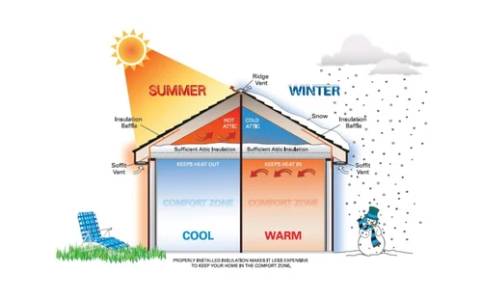Description
Roof Thermal Insulation Materials: Maximize Energy Efficiency & Comfort
Protect your home and save money with our high-performance roof thermal insulation materials. We offer a range of solutions to suit diverse needs and budgets, ensuring optimal thermal performance and long-term value. Whether you're building a new home or retrofitting an existing one, our insulation will help you create a more comfortable, energy-efficient, and environmentally friendly living space.
Why Choose Quality Roof Insulation?
Poor roof insulation can lead to significant energy loss, resulting in higher energy bills, uncomfortable indoor temperatures (both excessively hot and cold), and increased strain on your HVAC system. Investing in superior insulation translates to:
- Significant Energy Savings: Reduce heating and cooling costs dramatically by preventing heat transfer.
- Enhanced Comfort: Maintain a consistent and comfortable indoor temperature year-round, regardless of external conditions.
- Increased Property Value: Energy-efficient homes are highly sought after and command higher prices in the real estate market.
- Reduced Carbon Footprint: Lower energy consumption contributes to a smaller environmental impact.
- Protection Against Moisture Damage: Certain insulation types provide a moisture barrier, protecting your roof structure from damage.
Our Range of Roof Insulation Materials:
We offer a variety of insulation materials, each with its own unique properties and benefits:
1. Fiberglass Insulation:
- Type: Rolls, batts, or loose-fill.
- Pros: Affordable, readily available, excellent thermal performance, relatively easy to install.
- Cons: Can irritate skin and lungs during installation (proper safety precautions are essential).
2. Mineral Wool Insulation (Rock Wool & Glass Wool):
- Type: Rolls, batts, or loose-fill.
- Pros: Excellent thermal performance, fire-resistant, sound-absorbing, environmentally friendly (made from recycled materials).
- Cons: Slightly more expensive than fiberglass, can be itchy to handle.
3. Spray Foam Insulation:
- Type: Open-cell or closed-cell.
- Pros: Excellent air-sealing capabilities, high R-value (insulating power), conforms to irregular shapes, moisture-resistant.
- Cons: More expensive than traditional insulation, requires professional installation.
4. Rigid Foam Insulation (Polyisocyanurate & Extruded Polystyrene):
- Type: Boards or panels.
- Pros: High R-value, durable, excellent moisture resistance, suitable for flat roofs and inverted roofs.
- Cons: Can be more expensive, requires careful handling and installation.
5. Cellulose Insulation:
- Type: Loose-fill.
- Pros: Made from recycled paper, excellent thermal performance, good sound absorption, fire-resistant when treated.
- Cons: Can settle over time, requires professional installation for optimal results.
Choosing the Right Insulation:
The best insulation for your roof depends on several factors, including:
- Your budget: Fiberglass is the most affordable option, while spray foam and rigid foam are more expensive.
- Your climate: Higher R-values are necessary in colder climates.
- Your roof type: Certain insulation types are better suited for flat roofs or sloped roofs.
- Your installation skills: Some insulation types are easier to install than others.
Contact Us Today!
Let our experts help you choose the right roof insulation for your specific needs. Contact us for a free consultation and quote. We'll help you create a warmer, more comfortable, and energy-efficient home. We also offer professional installation services.
